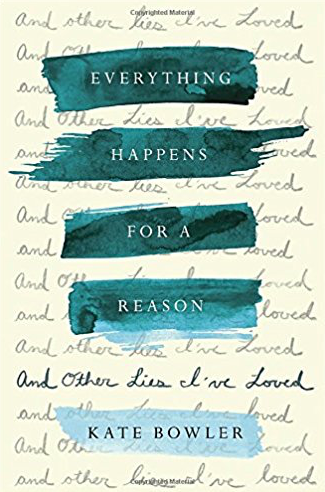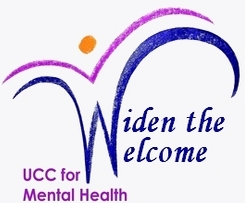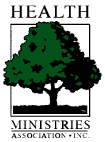Mind Body Spirit – March 2018
Mind, Body, Spirit: Linking Lives for Health and Wholeness
The Faith Community Nurse Health Ministry Newsletter
March 2018, Volume 3, Issue 2
 “Spirituality in Medicine” – A program for the State University of New York – University of Buffalo Medical Students
“Spirituality in Medicine” – A program for the State University of New York – University of Buffalo Medical Students
For 12 years the Network of Religious Communities has partnered with the University of Buffalo Medical School to provide a “Spirituality in Medicine” program for third year medical students. The purpose of the program is to help medical students become excellent physicians able to provide quality healthcare that addresses the physical, emotional and spiritual concerns of their patients.
The program is based on the assumption that many of their patients are and will continue to be religious. If they, as physicians, are to gain the trust and respect of patients they need to be aware of and respectful of their patient’s religious beliefs and practices.
The class of third year medical students is divided into two sections. Each group spends a half a day attending lectures, reviewing case studies and participating in small group sessions with persons from a variety of religious traditions who also have experience within health care. Each year approximately 14 different faith traditions are represented. The volunteers share the beliefs of their faith and explain how these influence the care desired by the followers that tradition. Considerations include the types of interventions and treatments most desirable, their understanding of the concept of healing, and the care desired when end-of-life approaches.
The program couldn’t exist without the volunteers that give extensively of their time and share their knowledge and wisdom. The faith community leaders include clergy, chaplains, lay leaders, practitioners, scientists, university staff and faith community nurses. In 2017 the faith traditions represented were: African American Pentecostal, Ahmadiyya Muslim, Buddhism, Baha’I, Church of Christ, Scientists; Church of Jesus Christ of Latter Day Saints, Eastern Orthodox Christianity, Roman Catholic Christianity, Hinduism, Humanism/ Atheism, Islam, Jehovah Witness, Judaism, and Native American.
This program has grown out of an earlier seminar series held at The Center for Hospice and Palliative Care in Buffalo, NY. There the students spent half a day with an interfaith group exploring “Spirituality and End-of-Life, and half a day with the Hospice staff on general “End-of-Life” care. The original program was funded by a grant from the Templeton Foundation. When that grant ran out, the University of Buffalo Medical School added it to their curriculum where it continues today.
Dr. David Holmes, Clinical Associate Professor in the Department of Family Medicine, has provided leadership to this program, and collaborates with the Network of Religious Communities. The Rev. Dr. G. Stan Bratton, Executive Director/CEO of the Network of Religious Communities (one of the oldest interfaith community groups in the U.S.) coordinates communication with the diverse faith communities and traditions in Western New York. Staff members from the medical school help to implement the program.
A sample of comments from medical students who have participated in the program illustrate the value of this initiative:
- “It was good to see other religions and see the diversity of our patients’ beliefs and how that can influence their perspective on medical care and inform us why they might make decisions we think unorthodox, giving us the background to be able to help them better.”
- “Yes, it was informative. Western Medicine can benefit from many Buddhist principles.”
- “Coming into the session I did not know much about this religion, but now I feel like I have a better understanding on how beliefs of Mormons may or may not affect medical care.”
- “This session was very useful. The lecturer did an excellent job explaining the Hindu religion and the different topics to be mindful of when caring for a patient of the Hindu faith.”
- “I realized how important it is to this patient population to not receive blood products. I also learned about alternative options.”
Every community has the opportunity to educate health care providers! It doesn’t have to be as large an effort as this is. Ask yourself, “How can I assist the health care providers around me become more comfortable and competent in treating people seeking care? What coalition of religious leaders could come together to share their knowledge with health care providers? Then talk with your colleagues in ministry and develop a plan.
If you would like more information contact
Rev. Amos Acree, RN, FCN, UCC FCN Leadership Team, revrn@juno.com.
Thank you to Rev. Amos Acree, RN, FCN, UCC FCN Leadership Team who submitted the article in collaboration with Dr. David Holmes, and the Rev. Dr. G. Stan Bratton nrc@religiousnet.net
 SELF-CARE
SELF-CARE
During the past two years every issue of this newsletter has provided information in support of your self-care. Now it is your opportunity to share your ideas and practices. As colleagues we can learn from each other. Send a brief e-mail describing your self-care practice(s) to peggymatteson@cox.net.
RESOURCES FOR OUR PRACTICE
 Educational Tools
Educational Tools
- Go Further with Food – Food is Fuel!
The The Academy of Nutrition and Dietetics wants to help us find easy ways to get the benefits of healthy food and reduce food waste. This will help us eat well and save money. Materials are available to educate the congregation. Thank you to Deborah Ringen, MS, RN-BC Faith Community Nurse for sharing this information.
- Faith Community Nurse Toolkit
The West Virginia Future of Nursing (a coalition of healthcare providers, educators, foundations, grassroots groups, foundations, associations, businesses, and faith communities) provides on their websites a wide range of links to health education resources you might find helpful as well as more specific information about how to start a health ministry. The Faith Community Nurse Toolkit was developed under the leadership of Angie Gray, BSN, RN, Director of Nursing Berkley County Health Department received funding from the Robert Wood Johnson Foundation Center for Creative Leadership to do this work. Thank you to Deb Stankiewicz, MS, RN-BC, Faith Community Nurse for sharing this information.
RESOURCES FOR OUR ONGOING PROFESSIONAL DEVELOPMENT
 Everything Happens for a Reason: And Other Lies I’ve Loved, written by Kate Bowler an assistant professor at Duke Divinity School, chronicles her journey, with both Stage 4 colon cancer at age 35 and the prosperity gospel a creed that sees good fortune as a blessing from God and misfortune as a mark of God’s disapproval. (How many times have you heard a person say, “What have I done to deserve this?”) In the book she explores aspects of her own beliefs and tries to figure out, “If I can’t have guarantees, then what can I have?” Kate explains her theological journey. You can also read an Excerpt from her book or watch a podcast Episode 5: Kate Bowler on the presence of God in the face of death. Random House published her book in February.
Everything Happens for a Reason: And Other Lies I’ve Loved, written by Kate Bowler an assistant professor at Duke Divinity School, chronicles her journey, with both Stage 4 colon cancer at age 35 and the prosperity gospel a creed that sees good fortune as a blessing from God and misfortune as a mark of God’s disapproval. (How many times have you heard a person say, “What have I done to deserve this?”) In the book she explores aspects of her own beliefs and tries to figure out, “If I can’t have guarantees, then what can I have?” Kate explains her theological journey. You can also read an Excerpt from her book or watch a podcast Episode 5: Kate Bowler on the presence of God in the face of death. Random House published her book in February.- Understanding the changes in Breast Cancer treatment. Many of the women and some men within our congregation and community have experienced breast cancer. During the past 20 years research has lead to the development of more individualized treatment protocols based on the current use of molecular predictive tests. Within your congregation you probably have women whose experiences fall along a continuum of ranging removal of one or both breasts followed by chemotherapy to those who now are just receiving hormonal therapy. The Susan Love Foundation provides you with the information required to be supportive to all women as you explain the various treatment protocols from which women and their providers may now choose.
Continuing Education
Conferences
- April 4th–6th Igniting Change and Innovation: The Impact of Health Education
Columbus, OH. More information available
*A valuable tool on the Society for Public Health Education (SOPHE) website is: A Justification Toolkit & Talking Points to help you explain to your employer or funder the value to your work if you attend. Print out the document and utilize it to facilitate the funding of your attendance at programs that will enhance your work.
 May 4th W.I.S.E. Congregations for Mental Health Conference,
May 4th W.I.S.E. Congregations for Mental Health Conference,
St Paul’s United Church of Christ, Downers Grove, IL.
This one-day conference offers:
- Ways congregations can address mental health concerns
- Stories from persons affected by mental health issues
- Practical steps to engage in a mental health ministry
- Introduction to the WISE (Welcoming, Inclusive, Supportive, Engaged) Covenant
- Network with those who are on the journey to address mental health challenges
- On-going support
FCNs find this information helpful as you more fully incorporate mental health strategies and the care of those affected by mental illness into your health ministry. To learn more and to register go to the UCC Mental Health Network
- June 7th Enhancing Your Parish Nurse Ministry: Tools for Your Toolbox, St Anselm College, Manchester, NH. Alyson Breich, MSN, RN-BC as a Faith Community Nurse, Commissioned Minister of Congregational Health in the UCC and lead editor for the 3rd edition of Faith Community Nursing: Scope and Standards of Practice will present at this all day conference. The brochure is available
- June 18th – 21st Innovations in Faith-Based Nursing Conference, Indiana Wesleyan University – School of Nursing, Marion, IN. For more information go to Nursing Innovations
- July 19th – 22nd Infusing Hope in Nursing: A Christian Perspective, at Azusa Pacific University, Azusa, CA. For more information go to Nurses Christian Fellowship International Regional Conference
- 7th – 9th Practice & Presence: A Gathering for Christians in Healthcare, at Duke Divinity School, Durham, NC. More information is available at Duke Divinity School.
-
 8th – 10th The Sacred Practice of Caring: Partnering for a Healthy, Hopeful Future. Health Ministries Asso. Annual Conference and Meeting in Erlanger, KY (Right next to Cincinnati Airport) Save The Date Flyer
8th – 10th The Sacred Practice of Caring: Partnering for a Healthy, Hopeful Future. Health Ministries Asso. Annual Conference and Meeting in Erlanger, KY (Right next to Cincinnati Airport) Save The Date Flyer
Webinars
You may register for Webinars, available free from the Insurance Board:
- March 14th, 2:00 (EST) – Driver Management for Owned and Non-owned Vehicles
- April 11th, 2:00 (EST) – Risk Management for Camps
- May 9th, 2:00 (EST) – Ladder Safety
- August 8th, 2:00 (EST) – Unique Risks – Preventing Sexual Abuse in the School Environment
- 12th, 2:00 (EST) – Trending Risk Management Concerns for Churches
DATES ON YOUR UCC CALENDAR
Some of these dates provide the opportunity to integrate health ministry activities with programming of other ministries. Direct links are provided when available
March 4th-10th UCC Women’s Week
This year you are invited into an exploration based on More Bad Girls of the Bible by the Rev. Barbara Essex and inspired by women’s experience in the current media, especially women involved in campaigns for justice for women, such as #MeToo, and #TimesUp. Bible Study and Service Prayers are available for use during this week or at a future time.
April 6th-8th UCC New England Women’s Celebration, Portland, ME
Open to all women Information and registration
May 20th Mental Health Sunday
June 24th Open and Affirming Sunday
(Materials will be available through the UCC Open and Affirming Coalition website)
FUTURE ISSUES
Have something you want to share with your colleagues?
Are you looking for something to assist you in your ministry?
That which we share with others multiplies immeasurably. Contact Peggy Matteson